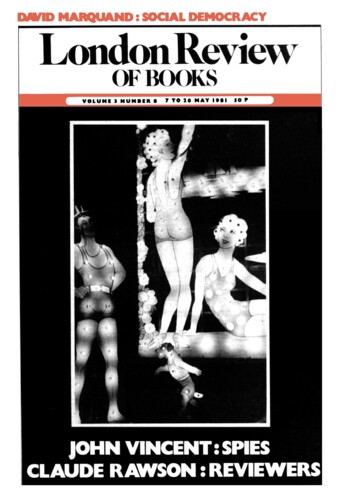Doing the impossible
James Joll, 7 May 1981
Before the First World War the British Foreign Office claimed that it based its policy on the maintenance of the Balance of Power, and that Britain, remaining aloof from European entanglements, could use her influence to preserve that balance and to prevent any other European power from disturbing it. In the 1980s, the foreign policy of every country is conditioned by the state of the nuclear balance of power, and Britain, like other small states, has very little opportunity to conduct an independent foreign policy on a world scale. British foreign policy today is ineluctably shaped by Britain’s economic decline. This not only means that the day-to-day stuff of foreign policy consists of arguments about agricultural prices and fishing quotas, but also that the primacy of foreign policy has given place to the primacy of domestic policy, not in the sense that foreign policy is conditioned by considerations of party and parliamentary politics, though this is occasionally the case, but in the sense that decisions are dominated by overriding economic considerations. The Foreign Office itself has comparatively little say. In Sir Edward Grey’s day, before 1914, it could operate without much regard for the other departments of government: now this autonomy has disappeared, and foreign policy is only one among several ways in which Britain seeks uneasily to find a way out of her economic difficulties.

